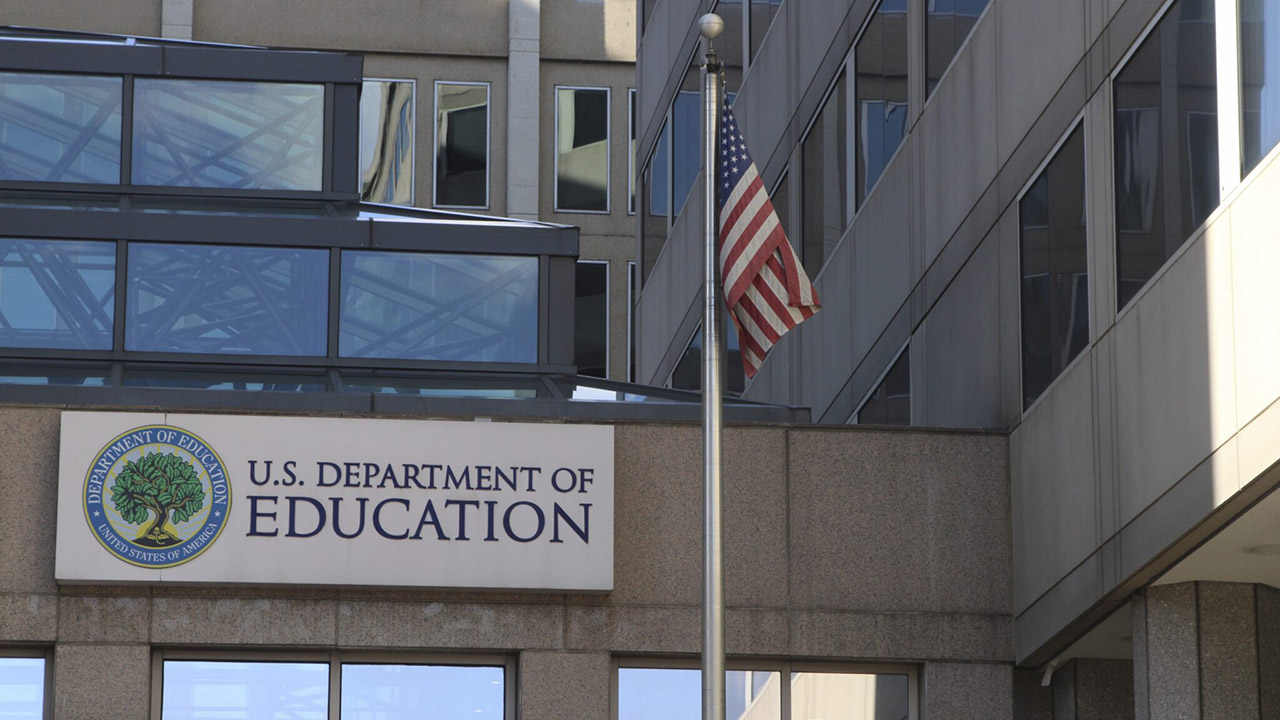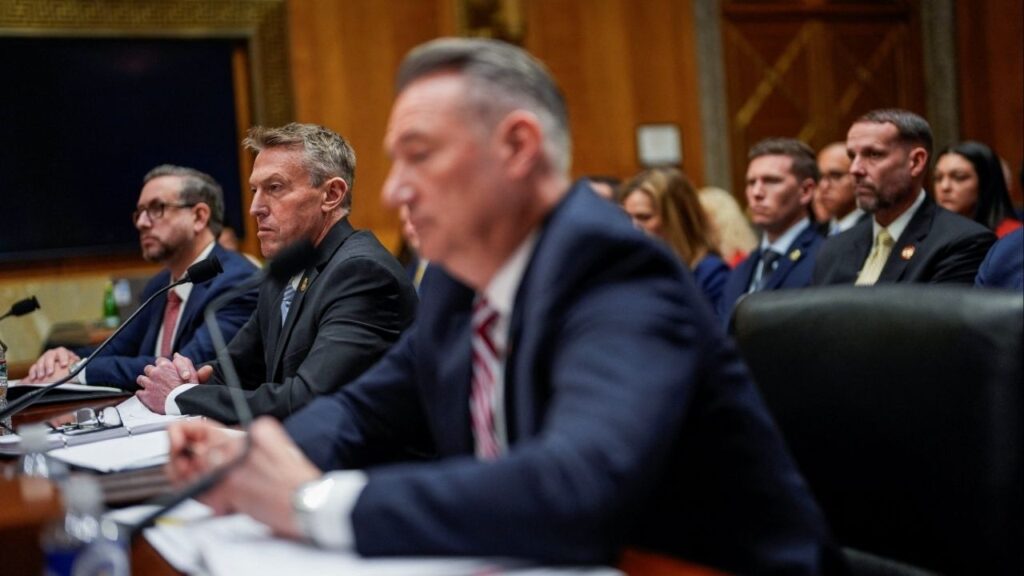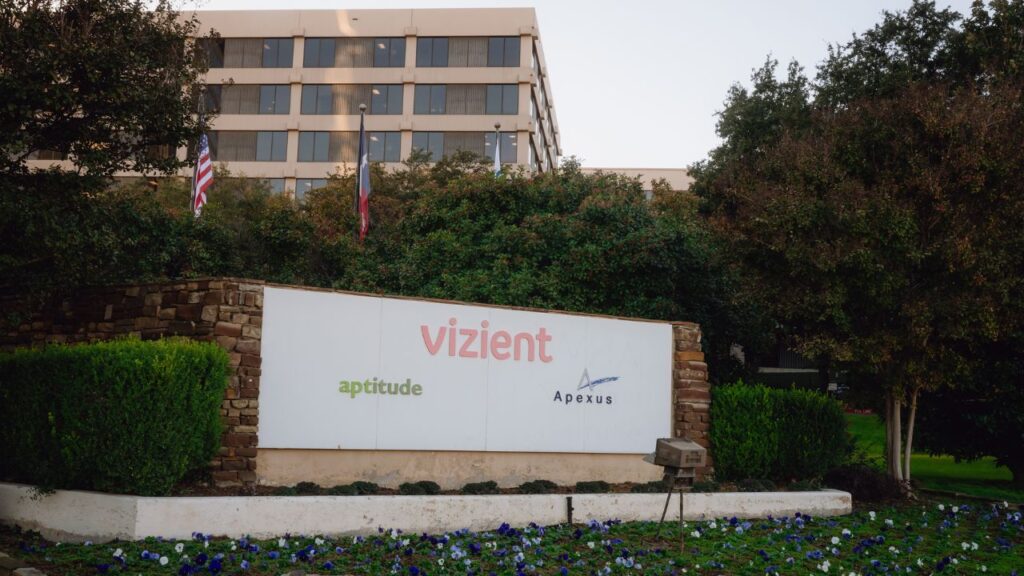California schools face tough decisions as federal government threatens funding cuts for diversity, equity, and inclusion programs. (AP/Carlos Kosienski)
Share
|
Getting your Trinity Audio player ready...
|
A letter to U.S. schools from Craig Trainor, acting assistant secretary for civil rights at the federal Department of Education, in Washington, D.C., has schools nationwide trying to figure out what to do about their diversity programs.

Mallika Seshadri
EdSource

Lasherica Thornton
EdSource
Tough decisions lie ahead for schools across California as the federal government cracks down on diversity, equity and inclusion efforts.
The latest measure came in the form of a letter issued Friday by the U.S. Department of Education, giving K-12 schools across the country two options: to eliminate programs focused on diversity, equity and inclusion (DEI) within two weeks, or face unspecified cuts in federal funding.
“I fully anticipate that it will have a chilling effect on school districts, but also colleges and universities,” said Royel Johnson, who leads the University of Southern California Race and Equity Center’s National Assessment of Collegiate Campus Climates.
The Department of Education’s letter isn’t law — nor is it legal, Johnson said.
However, many advocates and community members say they are concerned that more and more districts will gut their diversity, equity and inclusion initiatives out of fear and deprive students from marginalized backgrounds of the support they need to succeed in the classroom and beyond.
“We often think about California as being protected from this larger right wing movement,” Johnson said. “But as we saw with changing patterns and demographic votes in the presidential election, I think there are many people in California who are wrestling with this conservative movement and who are afraid of it — and who are proactively or preemptively making decisions.”
(This article originally appeared on EdSource.)
‘An Underlying Disconnect’: The Letter
The Department of Education’s letter opens with the words “Dear Colleague,” but the ensuing message takes on a different tone.
“Rather than engaging in that work of acknowledging and affirming educators, what the Trump administration has done thus far is to express hostility and disdain,” said John Rogers, a professor at UCLA’s School of Education and Information Studies and associate dean for research/public scholarship.
The letter specifically claims that white and Asian American students, including those from lower income backgrounds, have been discriminated against and that “educational institutions have toxically indoctrinated students with the false premise that the United States is built upon ‘systemic and structural racism.'”
Increasing schools’ scores on the Nation’s Report Card has been a justification for some of the administration’s changes, according to Rogers.
But instead of boosting student performance, Rogers maintains that the directive could “throw K-12 schools into further tumult” due to the high fiscal costs of culture wars. Just last year, conflicts surrounding race and LGBTQ+ issues cost schools more than $3 billion nationwide.
“They’re pushing superintendents and those underneath the level of the superintendency to spend time seeking out legal counsel, talking with other educational leaders, trying to figure out, ‘What do we do? What are we doing now that might be considered problematic? Do we need to take action, etc?'” Rogers said.
“All of that time and energy, and to the extent that they’re seeking out costly legal counsel, that has real costs associated with it. It’s pushing people away from the important work of improving student learning and supporting student well-being.”
While Rogers maintained that the letter was hostile in tone, he also described it as vague and confusing — a sentiment shared by many.
Rogers said: “If I was a superintendent, I would want to know: ‘Can my principals bring together a group of Asian American students to talk about whether they’ve experienced anti-Asian hate? Could my district invite African American parents to share their oral histories about growing up in my community as part of African American History Month, or, for that matter, can we even celebrate African American History Month?”
Superintendents, he said, “don’t have enough information — yet they’re being given two weeks to either take dramatic action or not, of which they have really no sense of what that would mean.”
Related Story: Trump Admin Gives Schools Deadline to End DEI Programs or Lose Federal Funding
‘Uncharted Territory’ for California Districts
With new, unclear circumstances on the horizon, more questions than answers are percolating through school districts across California.
Nikki Henry, spokesperson for Fresno Unified School District, said Tuesday that the district and its attorneys are reviewing the letter to understand its impact.
Fresno Unified’s school board in 2020 passed a resolution declaring the district an anti-racist institution that would “examine and confront biases” and in January reaffirmed the district as a safe place for all students, including immigrant students and families.
That mindset and approach may put Fresno Unified, which received around $238 million in federal funds this school year, in jeopardy of losing such funding under the new administration.
With nearly 93% of its students identifying as members of minority communities, the district has implemented “strong” diversity, equity and inclusion initiatives, Henry said. Their DEI policy ensures that students have equitable access to the district’s programs and services, that the curriculum reflects and celebrates diversity and that there are sufficient academic, social-emotional and behavioral supports.
Further south, administrators in Los Angeles Unified, the state’s largest district, have also expressed support for students of all backgrounds — a move that is lauded by Evelyn Aleman, the organizer of Our Voice/Nuestra Voz, a bilingual Facebook group largely made up of parents and advocates.
“In terms of advocating for and supporting the difference between populations that it serves, (LAUSD])really does try to do that, so … I think we’re going to be OK. I think we have a district that gets us.”
In a statement to EdSource, a Los Angeles Unified spokesperson said the district “adheres to all federal and state law and guidance” — and that if there are discrepancies between the two, they would be resolved through the state.
However, last July, Parents Defending Education, a Virginia-based conservative group, filed a complaint with the Office for Civil Rights against the Los Angeles Unified School District for its Black Student Achievement Plan.
Months later, the district watered down the language surrounding the program.
And some members of LAUSD’s larger community, including United Teachers Los Angeles President Cecily Myart-Cruz, said they fear that this decision could signal how the district might respond to directives from the federal government.
“If I only had to go on that (decision regarding the Black Student Achievement Plan), then I would say I’m concerned,” Myart-Cruz said. “I believe in our students. … I know that UTLA, we’re going to stand right alongside our students and our community. … If we put resources in for our students, then it helps everyone.”
Clovis Says It Won’t Be Impacted
Other districts like Clovis Unified, however, maintain that they will not be impacted, according to spokesperson Kelly Avants.
Based on the way Clovis Unified is interpreting the Education Department’s letter, Avants said affected districts are likely those with hiring practices or scholarships with DEI guidelines or selection criteria based solely on race or gender.
Avants added that all Clovis Unified activities to celebrate different cultures are open to the entire student population.
“We’ve not gone one direction or the other,” Avants said. “We really have tried to be sensitive to our programs being holistic versus centrally focused.”
Related Story: NAACP Urges Support for Companies Upholding DEI Commitments
What’s at Stake
Experts and teachers have continually emphasized that diversity, equity and inclusion programs enrich students’ learning and that they also play a critical role in students feeling like they belong.
“DEI provides mechanisms for addressing issues of safety and security for students who sometimes experience physical harm, psychological harm,” Johnson said. “But, if we start removing the very mechanisms that are designed to address these issues, we’re going to see higher reports and students having concerns around their safety at school.”
He added, “If students feel a sense of connectedness and belonging to the school environment, they’re more likely to be retained, they’re more likely to come to school on time and persist toward their goals.”
Several indicators of student success, from student attendance rates to engagement, rise when DEI programs are implemented, he said.
And in the classroom, Aleman from Our Voice/Nuestra Voz, emphasized the importance of learning about the contributions of immigrants from various backgrounds.
“We’re at a stage of global interaction that requires that we understand … the rich history and contributions of immigrants and different populations,” Aleman said. “We are a heterogeneous culture. … and we don’t understand why the administration doesn’t understand that.”
Pushing Back
While the Department of Education’s letter focuses on race, civil rights protections — including through diversity, equity and inclusion initiatives — support students from various identities based on other factors, including gender, disability and age, according to Amir Whitaker, senior policy counsel of the ACLU of Southern California.
And Johnson said marginalized groups, including those who are LGBTQ+ and first generation, could also be impacted by potential cuts to DEI.
“I hope that school district leaders and leaders of college and universities will not back down from this moment — and lean into the institutional values that have animated their work for years prior to this erroneous sort of guidance that is designed to threat and intimidate,” Johnson said. “If we all roll back and back down at this moment, then our students will suffer.”
Whitaker added that the very policies that the letter cites — like the Civil Rights Act of 1964 — were victories that “people fought and died for.”
The Trump administration’s action, he said, is a “a step backwards in this nation’s journey towards equality and justice.”
“If California backs down,” Johnson said, “I wonder also what message that sends to the rest of the country, that this ultra-progressive place is already making concessions and their sort of commitments to do DEI, what that might mean for less progressive places who are figuring out where they fit within this conversation.”
About the Authors
Mallika Seshadri covers education in Los Angeles, including LAUSD, for EdSource.
Lasherica Thornton covers education in California’s Central Valley.
RELATED TOPICS:
Categories

EDC Las Vegas 2026 Reveals Star-Studded Lineup

Mexican Ships Carrying Humanitarian Aid Enter Havana Harbor
















